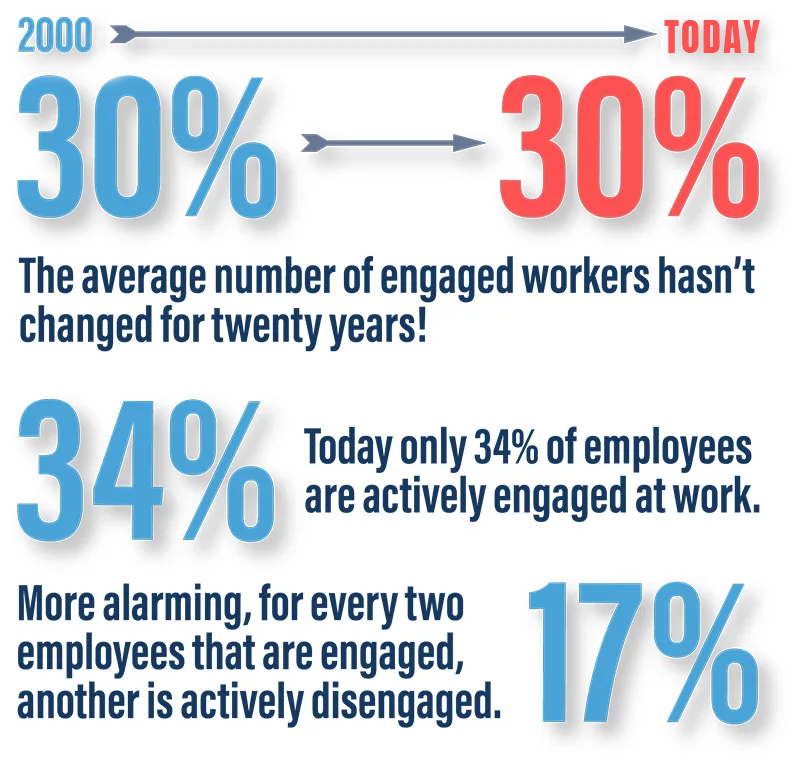
Many organizational leaders do not know how to proactively measure or manage their company culture, thus, understanding the results of their culture becomes challenging.
Business leaders across all industry verticals are increasingly realizing the importance – better yet – the necessity of examining their company culture and its impact on their business. The most innovative leaders are recognizing the pursuit of achieving operational excellence requires a strategic look at all components of one’s business beyond the systems and processes that support it.
Your company culture, as defined by the values system that exist within an organization, the consciousness that internal stakeholders have around these value systems, and your leadership team’s ability to exhibit and practice the behaviors that espouse those values, makes the difference between realizing positive or negative outcomes for your business.
When the dust settles on your business for the current year, and you examine your company culture vision for the new year, how will you measure the results of your company culture? What was your cultural performance score? It is time to examine if you are exploring the results (impact) of your company culture through a Proactive or Reactive lens.
Reactive Results:
Most organizational leaders do not know how to proactively measure or manage their company culture, thus, understanding the results of their culture becomes challenging. Most organizations have adopted reactive methods to attempt to understand how their leaders are driving their company culture vision with common tools such as Employee Engagement Surveys, Pulse Surveys, Net Promoter Scores, etc.
I am not suggesting these tools do not have a role in the management of company culture. They do have a time and place. Short-interval or periodic solicitation of perceptions and insights can provide information that informs an organization, as a moment-in-time, how the general population of employees or leaders perceives their experience. You can generate insights, learn from perspectives, and promote engagement and collaboration using these tools. However, the general nature and construct of these tools yields reactive or ‘lagging’ indicators of performance.
To proactively measure workplace culture, understand how it translates into leader or business performance, and determine how to improve it, these tools simply miss the mark.
Many survey tools solicit reactive insights from employees that include their personal and anecdotal perceptions regarding individualized workplace experiences and opinions of leaders. These insights are often compiled, synthesized, and used to form generalizations about the organizational culture. These reactive generalizations are then used as the basis for developing strategies to “improve” the workplace culture.
There are many issues with this approach. One fundamental issue with this approach is the generalizations developed from these reactive survey results are derived from the interpreter’s casual correlations between employee perceptions and the performance outcomes of their leaders and the business.

There are no direct links that clarify and validate the specific factors contributing to the employee’s perceptions (or misperceptions) of their experience. Root-cause analysis of the factors that contributed to the survey results and the objective linkage to the cultural performance of the company never occurs. Thus, the cultural improvement strategies that stem from these results are also reactive, circumstantial, and fail to have a sustainable impact.
Proactive Results:
Fixing employee engagement begins with a proactive understanding of how and why employees are engaged in the first place. Creating ownership and accountability surrounding your company culture from a more proactive point of view must begin with correlating behavioral expectations of your leaders with outcomes. You achieve this by measuring how your leaders engage with employees within the organization and the specific effect these engagements have on driving positive business results.
By establishing visibility regarding when leaders fail to exhibit the behaviors that align with your company values, and the implications of these failures, you will prompt proactive action to address them. You will not have to wait for the results of engagement surveys as the primary indicator of how leaders are positively or negatively contributing to the employee experience.
Leaders will need to act. They will need to “step up.” The same applies to your identifying the positive leadership behaviors and practices that align with your company’s values. This real-time approach to measuring how your leaders engage with employees and how these engagements align with your company culture enables causal correlations to your leader’s and employee’s experiences.
Indicators to consider when proactively measuring the results of your cultural practices:
- Has the frequency and quality of the interactions between leaders and employees changed? For example, has it improved?
- Has the quality of your leader’s decision-making improved? For instance, did the leadership address root-cause of issues?
- Has your frontline leadership team’s productivity shifted in alignment with the change in the level of leadership engagement, either positively or negatively?
The Conclusion: Managing and Measuring Company Culture Never Stops.
Measuring cultural performance outcomes and the impact that these outcomes have on your business requires a correlation to specific performance indicators. When measuring results of your cultural performance, consider the tangible and intangible variables influenced by your leader’s behaviors and interactions, including productivity, employee or customer retention, sales acquisitions, safety incidences, employee engagement scores, and more.
Actively managing and measuring the results of your company culture is not a one-time initiative. It is an ongoing journey and needs steering at the required points of inflection. These points of inflection are best interpreted in real-time, where culture happens – on the front-line. It also requires continuous reinforcements and role modeling from the leadership team. Senior leaders must ensure the front-line leaders are kept engaged in actively promoting the desired company culture by showing them the impact created by the values, behaviors, and interactions on performance.
The POWERS Difference.
POWERS management consulting’s unique Culture Performance Management™ methodology connects the dots between optimized company culture and your desired operational performance outcomes.
POWERS has helped global leaders across many industries operationalize their culture for rapid and sustained performance improvement, increased competitive advantage, greater value, and a stronger bottom line.
To put our experienced team and proven track record to work for you, schedule an initial discovery and analysis by calling +1 678-971-4711, or emailing us at info@thepowerscompany.com.

